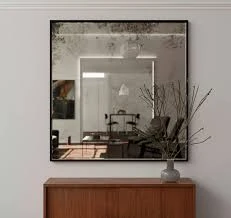

Understanding Laminated Float Glass Benefits, Applications, and Production Process
Laminated float glass is an innovative product that combines the properties of traditional float glass with enhanced safety and performance features. This advanced glazing solution is created through a special lamination process that bonds two or more layers of glass with an interlayer, typically made of polyvinyl butyral (PVB) or ethylene-vinyl acetate (EVA). This unique construction not only provides aesthetic benefits but also imparts numerous functional advantages, making laminated float glass a popular choice in various applications.
The Benefits of Laminated Float Glass
One of the primary advantages of laminated float glass is its outstanding safety features. In the event of breakage, the interlayer holds the shards of glass in place, preventing them from shattering and reducing the risk of injury. This makes laminated glass an ideal choice for applications where safety is paramount, such as in schools, public buildings, and vehicle windshields.
Additionally, laminated float glass offers significant acoustic performance. The interlayer acts as a sound barrier, effectively reducing noise transmission between environments. This quality is particularly beneficial in urban settings where noise pollution can be a major concern. Buildings situated near busy roads or airports can greatly benefit from laminated glass windows, allowing for a peaceful interior atmosphere.
Another crucial benefit is the enhanced UV protection that laminated float glass provides. The interlayer can block up to 99% of harmful ultraviolet rays, protecting interior furnishings, artwork, and occupants from fading and deterioration due to sun exposure. This feature makes laminated float glass a preferred choice for items that are sensitive to UV radiation, such as delicate textiles and antiques.
Applications of Laminated Float Glass
The versatility of laminated float glass allows it to fit into a myriad of applications across various industries. In the construction sector, it is widely used for window glazing, skylights, and curtain walls. Its safety and insulation properties make it an excellent choice for high-rise buildings and commercial properties, contributing both to the aesthetic appeal and structural integrity.

In the automotive industry, laminated glass is essential for windshields and side windows. The safety features of laminated glass further protect passengers by minimizing the risk of glass shattering in the event of an accident. Additionally, it can help in reducing wind noise while driving, enhancing the overall comfort of the vehicle.
In residential settings, laminated float glass is increasingly being used in shower enclosures, balustrades, and sliding doors. Homeowners appreciate its modern look combined with safety features, making their living spaces both stylish and secure.
Furthermore, the art and retail sectors use laminated glass for display cases and artwork framing. Not only does it protect valuable items from theft and damage, but it also enhances visibility through its clarity and minimal distortion.
Production Process of Laminated Float Glass
The production of laminated float glass involves several critical steps to ensure high quality and performance. The process begins with the selection of high-quality float glass, which is cut to the desired size and polished to achieve a smooth finish. Once the glass panels are prepared, the interlayer is placed between them, creating a sandwich-like structure.
Next, the assembly is subjected to heat and pressure within an autoclave, a specialized machine designed to bond the layers together effectively. This process eliminates air pockets and enhances bonding strength, resulting in a durable and resilient product. Once cooled, the laminated float glass is inspected for quality assurance, ensuring that it meets industry standards.
Conclusion
Laminated float glass is an excellent solution for those seeking a perfect balance of safety, aesthetic appeal, and performance in their glass applications. Its remarkable features, such as shatter resistance, sound insulation, and UV protection, make it an invaluable material in various sectors, including construction, automotive, and retail. As technology continues to advance, the production techniques and applications of laminated float glass will likely expand, offering even more innovative solutions for modern design and safety challenges. Whether for residential, commercial, or industrial use, laminated float glass remains a leading choice in the world of glazing solutions.